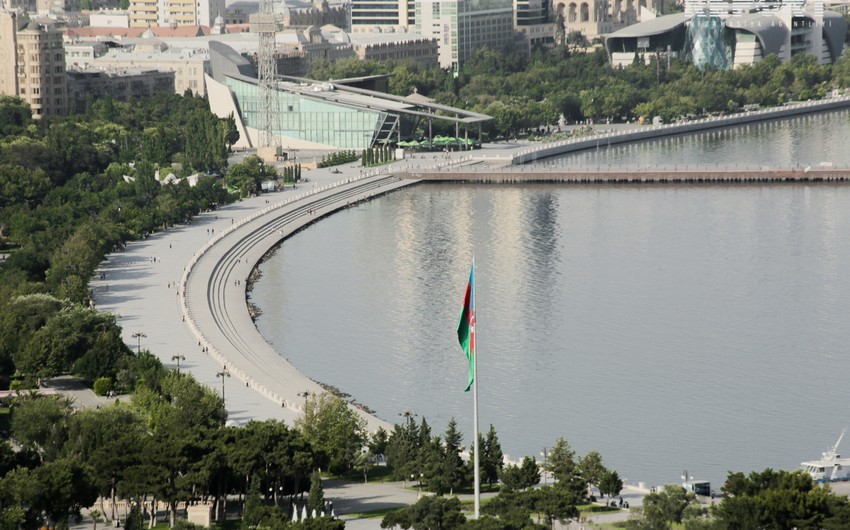In the vibrant city of Baku, at the crossroads of Eastern Europe and Western Asia, the 6th World Forum on Intercultural Dialogue recently unfolded, showcasing Azerbaijan’s burgeoning role as a pivotal player in the Caucasus region. This forum, often referred to as the "Baku Process," is not merely a diplomatic or cultural gathering. Instead, it addresses the profound global challenges of cultural divisiveness and intolerance, making it a crucial platform for discussing sustainable development, peace, and cooperation.
Under the leadership of President Ilham Aliyev, Azerbaijan has strategically positioned itself as a leader in the Caucasus through proactive diplomacy and cultural initiatives. By hosting this significant event, the country underscores its commitment to global cultural integration and its ambition to mediate in a region often strained by geopolitical tensions. President Aliyev's vision is clear—Azerbaijan is to be seen as a central and invaluable part of the Caucasus, a vision that was palpable throughout the forum. His speeches and initiatives advocate for viewing cultural diversity as a strength rather than a vulnerability, promoting Azerbaijan as a bridge between the East and the West.
The forum brought together leaders, policymakers, cultural advocates, and scholars from across the globe to discuss and deliberate on enhancing intercultural dialogue. One of the key outcomes was the Baku Declaration, which emphasizes the creation of inclusive societies that are resilient to discrimination and inequality. This declaration advocates for reinforced policies that promote cultural diversity and intercultural dialogue at both national and international levels.
Additionally, several new initiatives were launched during the forum, including educational programs aimed at teaching the youth about the importance of cultural diversity and digital platforms designed to facilitate intercultural learning and exchange. Such initiatives are crucial for educating a generation that is technologically savvy and culturally aware.
Azerbaijan's commitment to cultural diplomacy is also evident in its strategic initiatives that enhance regional cooperation. The country has developed cultural corridors that not only boost tourism but also facilitate cultural exchanges, crucial for fostering understanding and reducing conflicts in the Caucasus and beyond.
The discourse at the forum also delved into the digital transformation's impact on cultural exchanges. In an era where digital communication platforms dominate, there is a pivotal shift towards using these technologies to bridge cultural gaps. Discussions focused on how digital tools can be harnessed to promote not just dialogue but also cultural preservation. By integrating traditional cultural expressions with modern technology, there is a tremendous opportunity to keep cultural heritage alive and relevant for future generations.
The implications of the 6th World Forum on Intercultural Dialogue are extensive. By providing a platform for the exchange of ideas and best practices, the forum has helped develop strategies to tackle cultural stereotyping and prejudice. It has also fostered increased cooperation between nations and cultures, creating a global community keen on achieving peace and sustainable development. Furthermore, the forum has strengthened the role of cultural diplomacy in international relations, proving that cultural exchanges can pave the way for solving complex global issues such as climate change, economic disparity, and international conflict. This enhanced focus on cultural diplomacy can lead to more robust international alliances and cooperative strategies that transcend traditional political and economic negotiations.
Moreover, the forum has elevated Azerbaijan’s international profile. By leading such a prestigious event, Azerbaijan has not only showcased its rich cultural heritage but also demonstrated its capability to facilitate significant global discussions. The success of the forum in Baku is a testament to the power of cultural diplomacy in addressing global challenges.
The success of the forum in Baku is a testament to the power of cultural diplomacy in addressing global challenges. As nations around the world grapple with issues of cultural divisiveness and social fragmentation, platforms like the Baku Forum are essential for promoting understanding and cooperation. The continuity of this dialogue is crucial, and it is necessary for international leaders and communities to sustain the momentum generated by the forum. This ensures that intercultural dialogue remains a vital tool in the global quest for peace and prosperity.
The 6th World Forum on Intercultural Dialogue was more than an event; it was a resonant call to action for all stakeholders to embrace the diversity of our global community. Under the steady leadership of President Ilham Aliyev, Azerbaijan is not only leading the way in the Caucasus but also setting a global standard for celebrating and utilizing cultural diversity as a resource for peace. As we move forward, it is incumbent upon all nations to heed this call and work towards a world where dialogue triumphs over division, and peace over prejudice.
By Maarij Farooq, deputy editor-in-chief at Pakistan Economic Net & Daily Ittehad Media Group


 https://static.report.az/photo/b04ccc00-a33f-3e80-a282-ed6af2d04412.jpg
https://static.report.az/photo/b04ccc00-a33f-3e80-a282-ed6af2d04412.jpg

